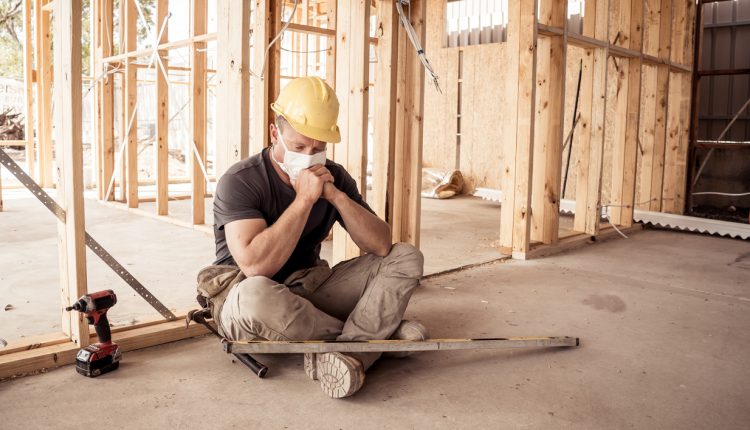The Importance of Contracts in the Wake of Covid-19
Below, Ross Taylor, partner and construction law specialist at Wright, Johnston and Mackenzie LLP sets out a series of guidelines for those working in the construction sector as the impact of the COVID-19 pandemic continues to intensify.
He advises those in the construction sector to take steps to improve their current position, and use the inevitable upcoming period of downtime to review contracts for future use.
COVID-19 has put us all in completely unchartered territory. A situation like this is totally unprecedented, and for many, there is a lot of uncertainty surrounding their professional lives. This is truer for those in certain sectors than others, and while no one can predict the future in a scenario like this, it’s fair to say those who work in construction will be severely impacted.
Although many major homebuilders have started to close sites in the last 24 hours, there is still a lot of confusion and conflicting advice out there around building sites and whether construction workers should be carrying on as normal or not right now. As it stands, the UK Government’s guidance on whether construction workers should be on-site or not is not definitive, and advice differs north and south of the border.
However, with Westminster set to urgently pass the Coronavirus Bill, the Scottish Government will be given the power to introduce regulations to protect public health, meaning they can impose laws which will effectively force building work to cease for the foreseeable future, as per their guidance.
This is where things can start to get complicated. Without labour, work cannot progress. Contractors will need to apply for more time to complete. If the government prescribes that labour cannot continue on-site, it is likely that there will be a contractual entitlement to stop progress and gain more time.
For anyone in the construction sector right now, it’s vital to think about what you can do to improve your current position.
A force majeure clause – which essentially frees both parties from immediate liability – may allow more time for unforeseen events. Or there may be a clause which provides that more time to complete is allowed for anything beyond the contractor’s control. However, these are open to interpretation, so if there is no clear prescription in the regulations, it remains to be seen how these general clauses will be applied.
For anyone in the construction sector right now, it’s vital to think about what you can do to improve your current position. What contract provisions are there, express or implied, that might give you an anchor in the current storms? Have you been paid all that you are due, or given contractual notices for non-payment? Do you have reason to send out suspension notices? It may be important to your cash flow to maximise every opportunity in your current contracts.
It’s also important to review your existing relationships. Are you getting a fair deal? Where do the risks lie in each of your contracts and what can you do to mitigate these? Can you take the opportunity to re-negotiate?
The playing field has just been levelled. Bigger businesses may face greater challenges, so now is a great time to look outward as if you were a start-up.
While it may be easier said than done given everything that is going on right now, I’d also advise using this time to do some housekeeping on your contracts. If you haven’t reviewed them for quite some while, now is the perfect opportunity to get to it. It’s likely you will have some downtime in the coming weeks and months, so use it to get your contracts in order for future use.
The playing field has just been levelled. Bigger businesses may face greater challenges, so now is a great time to look outward as if you were a start-up. Take the time to improve efficient service delivery such as your systems, processes, structures and skills base, and invest in a marketing strategy, reviewing your website and branding.
Ross Taylor has extensive experience of working with a cross-section of clients in the construction industry, including sole traders, SME contractors, national commercial developers and private self-builders. Ross specialises in contentious construction disputes.




